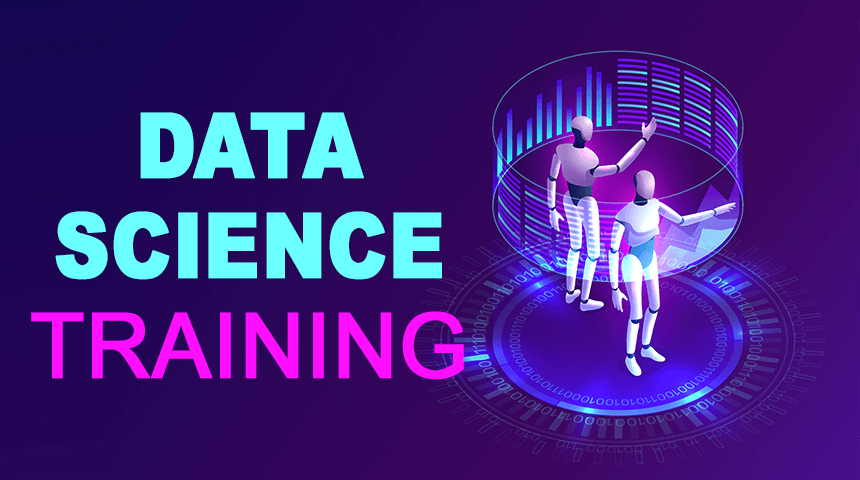EDUCATION
Decoding Business Trends: Data Scientists and the Need for Data Science Training

Data scientists contribute significantly to making data-driven decisions; this is because organizations are increasingly relying on their expertise to navigate through the vast amount of information that they have or generate. The data scientist, at the center of any successful data driven enterprise, is a polymath who can understand technology, and business issues and analyze them. These professionals are indispensable in decrypting complicated datasets and extracting implementable insights that can inform momentous decisions towards growth and innovation. This article will delve deep into the complex role played by data scientists highlighting some of their many challenges, and pg program in data science as upskilling avenues for professionals.
The Importance of Data Scientists
Data scientists act as invisible conductors, converting raw information into actionable insights that promote organizational success. From meticulous data curation to unearthing intricate patterns from them; all are aimed at guiding firms to prudent decision-making processes leading to sustainable development.
Finding Your Way Through Data:
Each database opens up like an unknown territory prompting data scientists out on their quests for discovery with patterns beneath its surface. By meticulously examining this material, data scientists can find meaningful patterns that hold the potential to affect business operations.
Driving Informed Decision Making:
For crucial decisions, data scientists become extremely valuable, enabling decision-makers with the direction and foresight needed to explore new grounds. They enable organizations to decode intricate details, necessitating them to make strategic choices in business operations while also outsmarting competitors.
Boosting Innovation and Progress:
Data science professionals go beyond mere analysis to drive innovation, thus facilitating transformative shifts within the organization. It sparks ingenuity by creating room for data-driven insights and fosters innovation leading to ground-breaking solutions that shift paradigms in industries and take companies to unprecedented terrain.
Main Challenges Faced by Data Scientists
Data Quality and Accessibility:
The perennial problem of data quality and accessibility is one of the major hindrances. Frequently, data sets that are incomplete, inaccurate, or scattered in various places force data scientists into extensive preprocessing and cleaning. It’s highly time-consuming to make sense of disparate data sources; so finding actionable insights becomes a painful burden for many analysts. Additionally, the truthfulness and reliability of information must be guaranteed as a bedrock upon which robust analyses can be carried out as well as sound decision-making processes.
Ethical and Regulatory Concerns:
In this era where privacy issues have been heightened, data scientists must navigate through a labyrinth of ethical considerations and regulatory concerns. The ethics of data science come under scrutiny when balancing confidentiality during insight extraction is concerned; which means that has become paramount with the rise of big data technologies. Striking an equilibrium between creativity on one hand but alignment with compliance on another requires practitioners to set very strict controls that would help enforce sanctions associated with breaking the laws regarding confidentiality. Being the custodians of large-scale databases, they have to ensure that there is individual privacy right protection while using such innovations derived from these streams of information.
Continuous Learning on the Backdrop of Technological Advancements
Professionals looking to stay ahead in data science will always have to deal with the fast-paced nature of technologies and methodologies. Involvement in this field calls for awareness of emerging trends starting from state-of-the-art algorithms to original approaches that can be used in analytics. This constant commitment to learning and upskilling is necessary if one wants to keep pace with new tools and platforms that are being developed by other data scientists using them to boost their analytical skills. A journey of lifelong learning awaits a data scientist who continually updates his or her knowledge in analysis through the acquisition of a range of tools and frameworks.
The foundation is created by programming languages like Python and R which are used for extracting, manipulating, and analyzing data. By using these languages, data scientists can build their entire framework for analysis as they seek insights from vast amounts of information. In addition, mastery of Matplotlib and Seaborn libraries helps someone visualize the data. These tools create visuals out of raw information which make it easy for a person to understand complex findings especially when communicating them to different target groups. Effective visualizations help convey insights more clearly and impactfully leading to better comprehension among individuals who use them in decision-making processes. Moreover, understanding machine learning libraries like scikit-learn and TensorFlow allows an expert user to identify patterns that exist among variables as well as relationships between them hence providing room for accurate predictions that can drive intelligent decisions within any organization.
However, technical skills alone cannot guarantee success in the field of data science. This equally implies there are other important factors aside from knowing how to write code such as possessing effective communication skills, critical thinking abilities, and problem-solving techniques. They should also have the ability to translate their findings into actionable recommendations in various domains where they operate as business partners would expect ethical practices from them while dealing with sensitive information-related issues concerning employment as well as other matters. Whether it’s presenting complex algorithms to non-technical stakeholders or working with cross-functional teams, the importance of effective organizational communication cannot be underrated.
Exploring PG Program in Data Science for Working Professionals
Data science is constantly developing and requires expertise, postgraduate (PG) programs provide an avenue that professionals can use to upgrade their skills and specialize. These programs are a well-designed combination of foundational principles, sophisticated methods, and practical applications in data science.
The foundation of pg program in data science includes a structured curriculum. It comprises mastering fundamental concepts and exploring advanced techniques that allow participants to develop their analytical skills as well as problem-solving abilities during this process of transformational learning. Additionally, an application-based approach serves as a link between theoretical knowledge and implementation experience allowing for comprehensive comprehension of different methodologies used in data analysis.
Moreover, PG programs offer great opportunities for networking among professionals. Here, participants get to meet industry insiders and like-minded peers who could end up being valuable contacts outside academic circles. This community also presents potential collaborators opening doors for joint ventures or even jobs within the vast field of big data analytics.
The flexibility that pg program in data science provides is unmatched; this means that online and part-time options allow individuals to merge their educational journey with their existing professional obligations. This is a flexible arrangement for professionals who wish to balance the career ambitions they have with family responsibilities as well without affecting their education.
Conclusion
Data scientists have made all the difference by unlocking the potential of data to drive business success. Although they encounter problems in their work, executive skills, and inventive ideas make it possible for organizations to interpret these insights into data analysis-based strategic choices and innovations. To working professionals who want to gain orientation towards a career in data science or improve their current skills, PG programs represent an attractive possibility for upskilling and promotion.
-

 Business5 months ago
Business5 months agoSepatuindonesia.com | Best Online Store in Indonesia
-

 Technology3 weeks ago
Technology3 weeks agoTop High Paying Affiliate Programs
-

 Tech5 months ago
Tech5 months agoAutomating Your Window Treatments: The Advantages of Auto Blinds
-

 Tech5 months ago
Tech5 months agoUnleash Your Potential: How Mecha Headsets Improve Productivity and Focus
-

 Instagram2 years ago
Instagram2 years agoFree Instagram Follower Without Login
-

 Reviews11 months ago
Reviews11 months agoAndroid Laptop vs. Chromebook: Which one is better?
-

 Instagram2 years ago
Instagram2 years agoIGTOK – Get Instagram Followers, Likes & Comments
-

 Business8 months ago
Business8 months agoFollow These 5 Tips To Avail Personal Loans At Lower Interest Rates




















